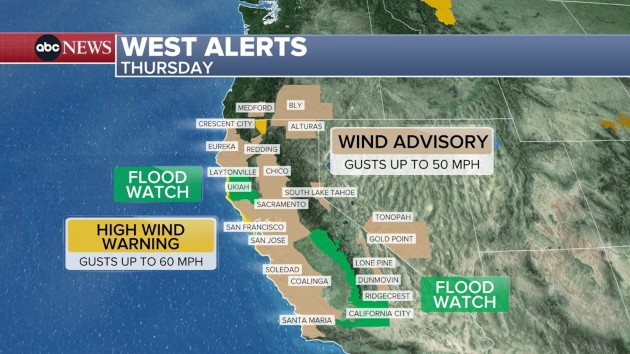Number of sea turtle nests on Florida coasts exploding, even tripling in some regions, conservationists say
Written by ABC Audio ALL RIGHTS RESERVED on October 27, 2023

(SPACE COAST, Fla.) — Turtles are once again proving that slow and steady wins the race.
Decades after initiating protections for the turtles that nest on Florida’s southeast coast — the densest nesting region in the world — conservationists are now witnessing the fruits of their labor as the number of turtle nests increased exponentially all over the state.
While the entire state is seeing a record number of sea turtle nests this season, the numbers have tripled since last year in Space Coast, Florida, a 72-mile span of beach on Florida’s central east coast near Kennedy Space Center and Cape Canaveral, experts told ABC News.
So far in 2023, Space Coast, has recorded a whopping 20,545 in loggerhead nests, 31,893 green sea turtle nests, 61 leatherback nests and three Kemp’s Ridley nests, with a total count of more than 52,500 nests in that area alone, according to the Space Coast Office of Tourism and the Canaveral National Seashore.
At one point over the summer, the region was seeing more than 300 nests pop up a night, Laura Henning, public information officer of the Canaveral National Seashore, told ABC News.
Green turtles have seen the largest increases out of the species that nest in Florida, Henning said.
The Archie Carr National Wildlife Refuge saw a 195% increase in green sea turtles, one of the most threatened species of turtles. By July 21, researchers counted 13,683 green turtle nests at the preserve, compared to 4,638 nests during the same time last year, according to the organizations.
When Henning began her career about 25 years ago, it was typical to see just 60 to 70 green turtle nests in one year, she said.
In the 1980s, those numbers were even smaller, with just five or 10 green turtle nests in one year, Cohen said.
Brevard County, where Space Coast is located, is unique because it contains 24 miles of unpopulated coast, much of it on federally protected land such as Archie Carr and Marin Islands National Wildlife Refuge.
“There isn’t really any reason for turtles to not come here,” Henning said.
But the entire state is seeing massive increases in turtle nests, Tonya Long, assistant research scientist for the Florida Fish and Wildlife Commission, told ABC News. Widespread reports from nesting surveyors around the state are showing record-breaking years, especially for loggerheads and green turtles, Long said, describing the phenomenon as “exciting.”
There have been 212,000 sea turtle nests recorded around the state, and the nesting season is not over yet, Joel Cohen, communications director for the Sea Turtle Preservation Society, told ABC News. Last year, the state saw 151,000 turtle nests.
Conservation efforts for sea turtles began in the 1980s following the passing of the Endangered Species Act.
The success story echoes that of the bald eagle and American alligators — other species on the brink of extinction that rebounded as a result of protections from the ESA, Cohen said.
Turtles are a very slow-growing species and often do not return to nest on the beach where they were born until they are about 25 to 30 years of age, which is why the results of the conservation efforts are just now being seen, Cohen said.
Conservationists have been seeing large jumps in the number of nests for the past decade, with those numbers exploding in the past few years, Henning said.
Sea turtles tend to skip nest years, so it is abnormal for two record years to occur consecutively, Henning said.
“That trend has kind of changed for us in that we’re seeing a really high year, and just a high and a high,” she said.
However, because of the slow maturation period, turtle researchers caution against looking at a single year of nesting numbers as a determination of the health of the species.
“Obviously we like to see higher numbers, Long said. “But we have to remember that it’s really the longterm trends that matter. Just because nest numbers are good right now, it doesn’t mean we can relax or remove regulations.”
Especially as climate change continues to threaten both the turtle habitat and their ability to sustain a population in the future, Cohen said.
Not only is sea level rise destroying the beaches where turtles come to nest, the warming climate is causing a disproportionate number of females to be born, since the gender of reptiles is determined by temperature, Cohen said.
In many cases, some nests are producing 100% females, which will severely affect the species ability to sustain healthy populations in the future, he said.
“It’s scary,” Cohen said. “The results of climate change are very obvious in the sea turtle world.”
Copyright © 2023, ABC Audio. All rights reserved.
 KVSP
KVSP 




